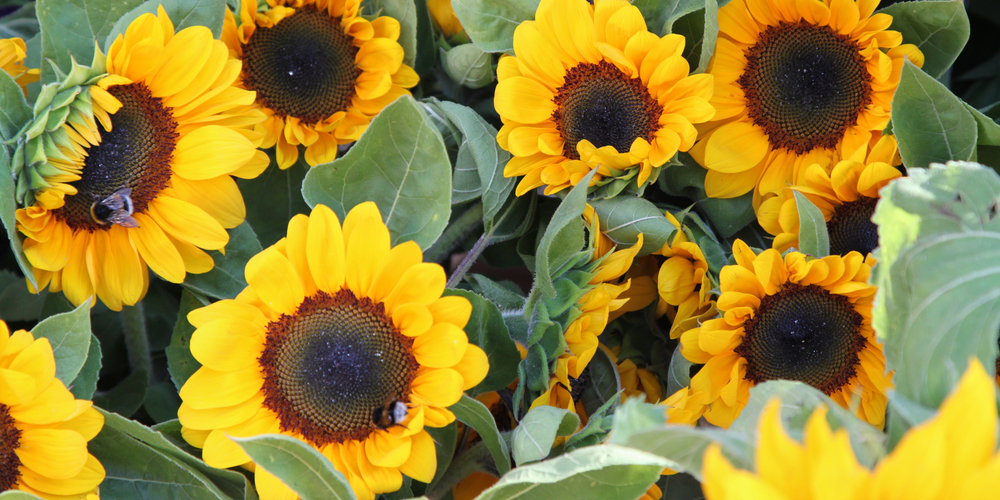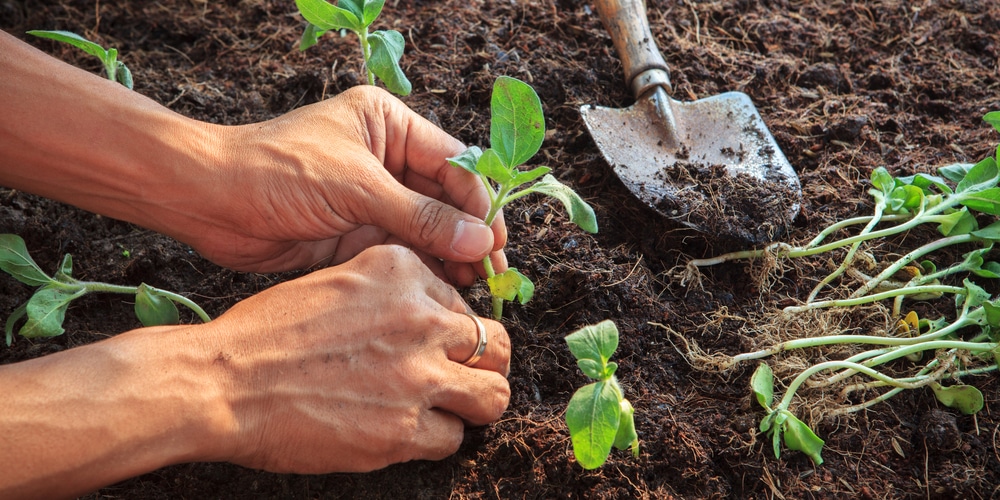Sunflowers in a garden add a sense of joy and happiness to a home, especially when they bring out their vibrant blooms in spring or summer. To many people, sunflowers are not only planted for beauty but also for their nutritious large edible seeds.
If you are planning to start growing sunflowers, most probably, you have identified a sunny planting region. However, you need to be accurate about the soil type because, like most plants, sunflowers will not grow well in any type of soil. This article will cover the type of soil to plant sunflowers and how to plant them.
Can sunflowers grow in clay soil?

Clay soil is a type of soil with a smooth texture and holds too much water. It also has more nutrients but lacks the humus that helps keep soils aerated.
On the other hand, sunflowers do well in rich, well-drained soils. As such, they won’t grow well in clay soil because they require medium to minimal water supply, yet clay soil is in most cases water longed. To add on, when there is too much sunlight, clay soil dries and becomes too hard and compact, thus hindering aeration.
Clay soil holds a lot of water that can be detrimental to the tender roots of a sunflower plant. However, you can risk planting sunflowers in clay soil if you have no option, but you need to first make hips of loam sandy soil on the ground before putting down your sunflower seeds. For respectable produce, ensure the initial clay soil land is relatively wet, not soggy, and clear of any weeds.
The best soil for sunflowers
Sunflowers grow best in rich, well-drained alkaline soil within the 6.0-7.5 range. That said, it is safe to say that the best soil for sunflowers is sandy soil. It is, however, a good idea to mix sandy soil with some loam soil to help in supporting the roots and the stem as well as enhance moisture-holding capacity.
Sandy soil releases water very fast and allows for easy air circulation. For nutrients, you can mix the sandy soil with manure or even add fertilizer to the soil before planting the sunflower seedlings.
Planting and caring for sunflowers.
Sunflowers are easy to plant because they have large seeds. After spotting fertile land well exposed to sunlight, you should start clearing the land and remove all weeds as you balance the soil level. Check the soil to ensure it is sandy or loam before putting seeds into the soil.
Sunflower seeds can be down directly into the ground and left to mature or be transplanted as feelings to a different place. It is advisable to sow the seeds once and wait until they mature rather than transplanting them while still young. Transplanting sunflowers exposes the seedlings to transplant shock that might weaken the roots or lead to delayed development and maturity. When you directly plant seeds to the soil where you expect them to mature, they will develop roots faster and build a healthy and timely maturity foundation.
Spacing is also essential when planting sunflower seeds. Plant not more than one inch deep and 5 inches apart in properly cultivated soil. It is advisable to plant sunflowers in late April or early May after the soil has warmed up and is relatively dry. Once they start to grow, remove the thinner seemingly and those that have grown too close to each other.
Even though sunflowers can withstand short draughts, they may need watering at some point. When the weather gets too hot, sunflowers should be watered every day or at short intervals in a week. When it’s raining, sunflowers need little or no watering. Remember, overwatering promotes diseases like root rot and makes the sunflower stalks weak.
When watering, make sure you drop water on the ground a few inches from the stalk. You need to pour adequate water into the soil so that it can reach all the expansive roots systems of a sunflower plant. Wait until the soil starts to get dry for you to water the plants again.
You can add fertilizer to the soil and mix well before planting seeds for better sunflower production. Naturally, sunflowers require a nutrient-packed soil structure to get sufficient nutrients that they pack within their seeds.
Can Sunflowers Grow In Clay Soil?: Conclusion
Soil type is a basic consideration when deciding where to plant sunflowers. Typically, clay soil is the worst soil to plant most spring and summer flowering plants, including sunflowers. Hopefully, you will find this article helpful in your search for the best soil for sunflowers.
Related Article: When to Plant Sunflowers?


